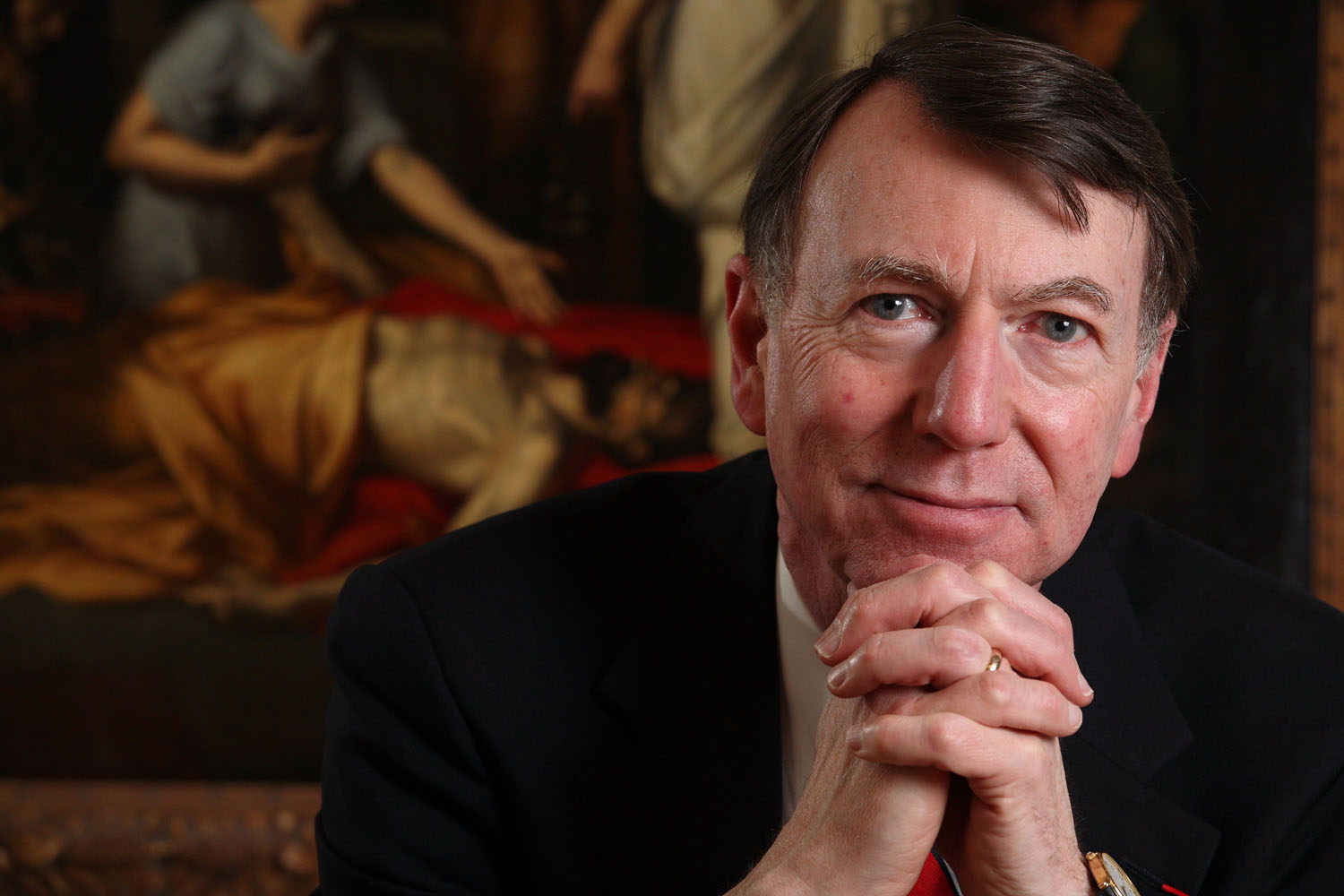June 6, 2008 — John Lyons doesn't like to think of what he does as research. From his point of view, it's scholarship — and that's a distinction with a difference. "I see myself engaged in a humanistic endeavor meant to pass on to students knowledge and perspectives they can use to enrich their lives," he said. In essence, Lyons sees his purpose as a scholar is to make connections, rather than discoveries — linking the past to the present, for instance, or French culture with our own.
Certainly these connections play a part in his research. The chairman of the Department of French Language and Literature, Lyons is a specialist in the 17th and 18th centuries. Research for his last book, "Before Imagination: Embodied Thought from Montaigne to Rousseau," provided an occasion for intellectual explorations that extended back to the Greek Stoics of the third century BC.
"The present is just a tiny band of what humans have thought over the centuries," he said. "I hope to encourage students to enlarge their horizons and to draw on other sources that can help them consider their lives in ways that are not connected to the immediate imperatives of their jobs or the idée du jour."
For Lyons, wisdom lies in making these connections.
For instance, Lyons was led to learn more about Stoicism because it experienced a revival during the 16th century and influenced the culture and the authors of the period. While Stoicism has now come to signify "keeping a stiff upper lip," the people of this turbulent time understood the value of distinguishing between events as they exist and their perception of them, the heart of the Stoic creed.
"This view is actually quite liberating," Lyons said. "It implies that you can control how you interpret events." For instance, rather than deciding that failing an exam is the first step toward a life of poverty, a student can choose to view it as an incentive to study harder.
Lyons finds scholarship infinitely rewarding because the potential for connections is limitless, ever expanding one's perspective. He currently is exploring the relationship of neoclassic tragedy and poetics to chance. "Tragedy is ultimately a reassuring literary genre," he said. "It tries to show that disastrous things happen to people for a reason, not randomly. This is comforting to people who might otherwise feel life is absurd."
Lyons' studies have taken him from the 16th century to the works of contemporary French philosopher Clément Rosset, who has written repeatedly on the nature of tragedy.
"Novels, plays and film provide a laboratory for us to encounter and explore the points of view of other people, to evaluate them, and, perhaps, to incorporate them into our own experience," he sad. "This is one way to enlarge one's stock of wisdom."
— By Charlie Feigenoff
Certainly these connections play a part in his research. The chairman of the Department of French Language and Literature, Lyons is a specialist in the 17th and 18th centuries. Research for his last book, "Before Imagination: Embodied Thought from Montaigne to Rousseau," provided an occasion for intellectual explorations that extended back to the Greek Stoics of the third century BC.
"The present is just a tiny band of what humans have thought over the centuries," he said. "I hope to encourage students to enlarge their horizons and to draw on other sources that can help them consider their lives in ways that are not connected to the immediate imperatives of their jobs or the idée du jour."
For Lyons, wisdom lies in making these connections.
For instance, Lyons was led to learn more about Stoicism because it experienced a revival during the 16th century and influenced the culture and the authors of the period. While Stoicism has now come to signify "keeping a stiff upper lip," the people of this turbulent time understood the value of distinguishing between events as they exist and their perception of them, the heart of the Stoic creed.
"This view is actually quite liberating," Lyons said. "It implies that you can control how you interpret events." For instance, rather than deciding that failing an exam is the first step toward a life of poverty, a student can choose to view it as an incentive to study harder.
Lyons finds scholarship infinitely rewarding because the potential for connections is limitless, ever expanding one's perspective. He currently is exploring the relationship of neoclassic tragedy and poetics to chance. "Tragedy is ultimately a reassuring literary genre," he said. "It tries to show that disastrous things happen to people for a reason, not randomly. This is comforting to people who might otherwise feel life is absurd."
Lyons' studies have taken him from the 16th century to the works of contemporary French philosopher Clément Rosset, who has written repeatedly on the nature of tragedy.
"Novels, plays and film provide a laboratory for us to encounter and explore the points of view of other people, to evaluate them, and, perhaps, to incorporate them into our own experience," he sad. "This is one way to enlarge one's stock of wisdom."
— By Charlie Feigenoff
Media Contact
Article Information
June 6, 2008
/content/french-professor-follows-development-philosophy-through-time-and-space

